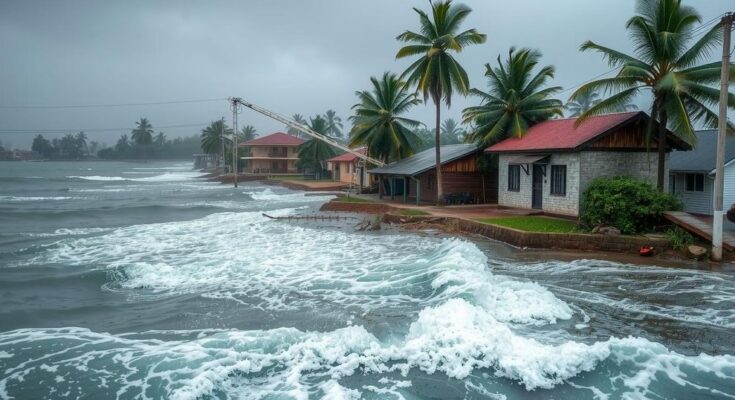Cyclone Chido has killed 13 individuals and affected 45,000 in Malawi, following its devastation in Mayotte and Mozambique, where it caused multiple casualties. The storm caused injuries to nearly 30 people and displaced 227, underscoring the challenges Malawi faces as a nation with significant poverty levels.
Cyclone Chido has tragically claimed 13 lives in Malawi following its rampage through the French territory of Mayotte and subsequent landfall in Mozambique, as reported by Malawi’s disaster management agency on Wednesday. Although the cyclone weakened considerably after moving over 500 kilometers inland, it still inflicted injuries on nearly 30 individuals and impacted approximately 45,000 people during its passage through Malawi this past Monday. The storm primarily struck Blantyre, Malawi’s second-largest city, which had a population of around 800,000 as of 2018. “Out of the 10,159 affected households, 227 people have been displaced,” noted the Department of Disaster Management Affairs.
With a severe poverty rate of 71 percent, Malawi is one of the world’s most impoverished nations, as highlighted by the World Bank. Prior to affecting Malawi, Cyclone Chido was deemed devastating in Mayotte, where it resulted in 31 fatalities and over 1,000 injuries, according to estimates released by local authorities. In Mozambique, the cyclone’s wrath resulted in at least 45 deaths and nearly 500 injuries, corroborated by official reports disseminated on Wednesday.
Cyclone Chido has emerged as a significant natural disaster in the southern African region, following its initial impact on the Mayotte archipelago. The cyclone has illustrated the vulnerability of nations like Malawi, Mozambique, and Mayotte to extreme weather events, which are projected to increase due to climate change. The situation emphasizes the need for improved disaster preparedness and resilience, particularly in countries grappling with high levels of poverty and inadequate infrastructure to withstand such catastrophes.
In summary, Cyclone Chido has resulted in devastating human and material losses in Malawi, further compounding the challenges faced by one of the world’s poorest countries. The cyclone highlights the urgent need for increased disaster response capabilities and resilience planning in the region. Moving forward, authorities must address the systemic vulnerabilities that exacerbate the impacts of such natural disasters to mitigate future losses.
Original Source: www.barrons.com




